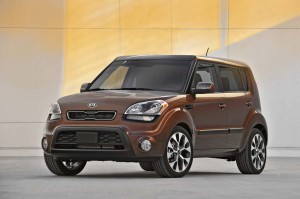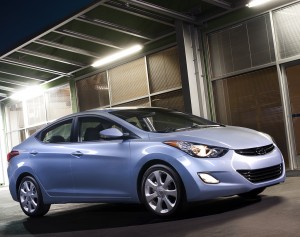Four years after the two automakers admitted overstating the fuel economy of many of their models by up to 6 mpg, Hyundai Motor Co. and Kia Motor Corp. will pay $41.2 million to resolve an investigation by 33 state attorneys general.
That’s on top of $350 million the two Korean carmakers paid as part of a settlement with federal regulators two years ago, and millions more in compensation and settlements paid to vehicle owners.
While the maker made no admission of violating any laws, the latest settlement “recognizes that fuel economy is a consideration in many car-buying decisions, and (Hyundai) remains committed to being responsive to customer concerns about our revised fuel economy ratings,” said David Zuchowski of the company’s U.S. operations.
In 2012, the U.S. Environmental Protection Agency launched an investigation of mileage claims by the two makers and discovered that a number of vehicles, including the popular Hyundai Elantra sedan and Santa Fe SUV, as well as the Kia Soul crossover, were significantly overrated. Kia ultimately reduced the mileage rating for the Soul, for example, by 6 mpg, and Hyundai acknowledged that four of its 2012 models did not top 40 mpg, as claimed.
“This is the first time where a large number of vehicles from the same manufacturer have deviated so significantly,” the EPA said at the time.
The two companies reached a $350 million settlement that included $100 million in penalties, the loss of $200 million in emissions credits, and about $50 million to be spent to shake-up the operations charged with determining vehicle mileage numbers.
They also announced an incentive program for owners of the affected vehicles and went on to settle additional legal claims. Those actions cost Hyundai and Kia another $395 million.
(GM offering payouts to CUV owners over inaccurate mileage numbers. Click Here for the latest.)
But 33 states eventually stepped in with their own investigations, Hyundai and Kia just now reaching a settlement worth $41.2 million – which the makers say will cover “investigative costs.”
After the initial errors were revealed, the EPA – which regulates mileage standards and automakers’ mpg claims – launched a broad crackdown that has since snared a number of other manufacturers.
Ford, for one, had to lower mileage numbers on six vehicles in June 2014. The restated figures dropped by as much as 7 mpg for the Lincoln MKZ Hybrid.
(GM halts sales of large crossovers to correct mileage numbers. For more, Click Here.)
This past May, General Motors acknowledged overstating the mileage of 146,000 sport-utility vehicles. It has since given owners gift cards and extended warranties collectively worth, according to the Reuters news service, about $100 million.
Fuel economy errors aren’t limited to the U.S., however. Japanese automaker Mitsubishi was caught earlier this year rigging mileage tests on a number of microcar models in a bid to increase its competitiveness. The company subsequently acknowledged rigging tests on other models going back as much as 25 years.
The scandal not only resulted in fines and the offer of compensation for owners but has also cost the automaker its independence. Long-time ally Nissan this month completed the purchase of a 34% stake of Mitsubishi that gives it, under Japanese law, control of the smaller maker.
(To see about automakers under fire for bending the truth, Click Here.)
Another Japanese maker, Suzuki, has also been caught rigging mileage numbers, the subsequent scandal leading to the departure of a number of senior executives.


